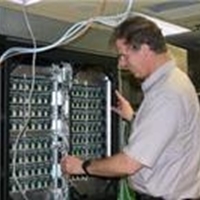
Watson may sound familiar to you. it’s the supercomputer created by IBM that rose to mainstream notability after defeating Tim Jennings on Jeopardy in 2011. Watson was able to do this due to an incredible capacity for processing big data, which IBM is now using to expand the culinary world. At SXSW, Watson was used by the Institute of Culinary Education, in partnership with IBM, to generate lists of complementary ingredients. The result was shocking; through removing the human element of judgment, culinary creations such as chocolate burritos were born. Here’s the crazy part: people loved them. In fact, IBM is now releasing, in partnership with Bon Appetit? magazine, the beta version of an app called (rather simply) Chef Watson with Bon Appetit, which will aid users in generating recipes and discovering complementary ingredients.
Of course, some people are already skeptical of the capacity of a computer to succeed in the very human process of designing food. The argument here is centered on the notion that removal of the human element leaves the process too rigid, and makes for poor results. Nonetheless, Adam Rapoport, chief editor of Bon Appetit, insists that the secret lies in how the human chef chooses to use Watson’s intellect.
“Watson’s not thinking for you,” said Rapoport to Slate. “It’s helping you think.”
Whether or not this is the future of culinary arts programs, it marks an impressive move forward in the development of data processing capabilities. As Steve Abrams, the director of IBM’s Watson Group, explains, the goal here is simply to demonstrate how this sort of technology can be a pathway to innovation across subject matter.
“The goal for us is to demonstrate what it is cognitive systems are capable of doing and how they help people discover new things,” Abrams told Wired. “We’re using food as a vehicle for that.”



